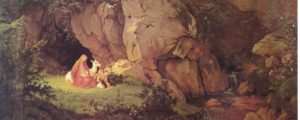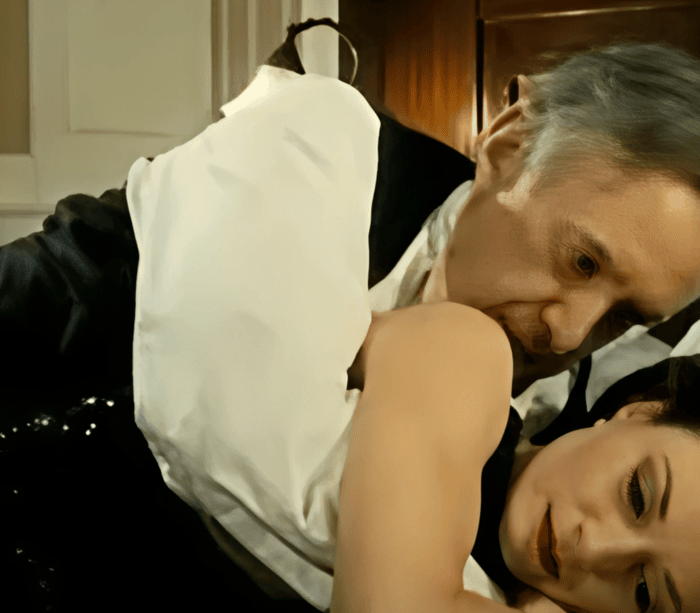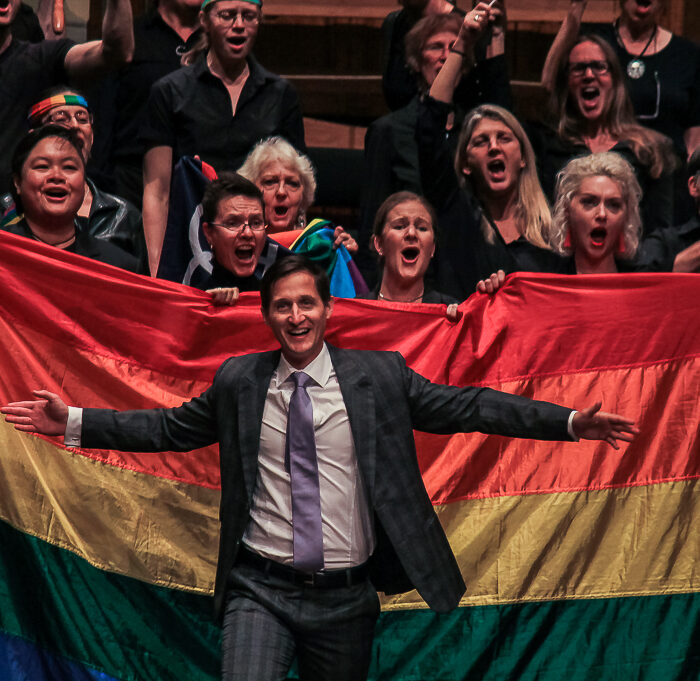
Wagner’s Influence on Robert Schumann’s ‘Genoveva’
By John Vandevert“Genoveva” is the only opera by Romantic composer Robert Schumann, composed beginning in 1842 and premiering on June 25, 1850, at the Leipzig Altes Theatre.
Based on the story of Genevieve of Brabant, the opera coalesced many tropes of German Romanticism with the growing trend and influence of Wagnerian musicality. In 1995, to our luck, the opera was re-premiered again at the Bielefeld Opera after 145 years.
A unique element of the opera’s history is the role that Wagner played in both influencing the music and ultimately, the fate of Schumann in the world of opera itself. Despite Wagner openly rebuking Schumann, the latter composer found the way to incorporate the musical style of the former into his own unique operatic voice.
Let’s take a look at the ways in which Wagner’s influence shaped the opera we know today as ‘Genoveva.’
Narrative Cross-Over
Like many other opera composers during the second-half of the 19th century, Wagner was somehow involved in the process of creating the opera. Within this opera, coincidentally, Wagner was busy working on his Holy Grail-esque opera “Lohengrin,” echoing his “Parsifal“ to come. In Wagner’s work, the 13th century Medieval romance “Parzival” is used along with its sequel, “Lohengrin” by the author Nouhusius. It is within this telling of the story that Wagner took for his opera and which Schumann’s opera finds its corollary.
However, for Wagner’s opera he reached for the work of German pedagogue Christian Theodor Ludwig Lucas, where the story’s best known form emanates and which is used to draw comparisons between Schumann and Wagner. As this version goes, while King of East Francia Henry the Fowler is busy with his preparations for an upcoming battle, Lohengrin is engaged in defending the princess against weightless accusations of having killed her brother Gottfried. These themes of redemption, pride, and vindication from supposed wrong-doing, would come to dominate other operas like “Tannhäuser” and “Der Fliegende Holländer.”
Some Comments & Some Music
Outside of purely narrative similarities, Wagner’s fingerprints on the opera can be seen in his reproachment of Schumann’s libretto, forever pitting each other against each other. Even Clara Schumann eventually became an avid anti-Wagnerian, although this was not due to Wagner’s comments per se. Some of Wagner’s comments poked holes in Schumann’s capabilities as a composer: “Schumann is a strange man who has no sense of melody, and his opera ‘Genoveva’ showed errors in conceptual design.”
Despite this negativity, Wagner’s aesthetics inevitably touched the writing of Schumann. In fact, so touched by Wagner was Schumann that the latter had said about the former that he was a, “profound and productive musician whose work I much admired.” Schumann and Wagner’s relationship seemed amicable at the start, yet after the premiere of Wagner’s second opera, “Das Liebesverbot,” things became a bit more tricky.
Thanks to Jakob (Giacomo) Meyerbeer and his opera, “Les Huguenots,” Schumann and Wagner’s aesthetic beliefs split, ultimately beginning their feud. As Wagner went down the road of more dramatic, more dense, more intricate, longer overall, and more complex thematically, Schumann was becoming less and less drawn to Wagner’s world. As the German world became entranced by Wagner’s new opera “Tristan Und Isolde,” Schumann’s own operatic attempt was side-lined. From personal comments by both, it’s clear that they didn’t think they could relate to each other.
This two-toned relationship is most evident in the nature of the music itself, being “through-composed,” or no standardized pattern of repetition and recitative before arias as most Romantic music tends to have. Schumann also avoided the usage of big virtuosic sections of songs, rather having them continue in a more continuous fashion as can be heard in Wagner’s opera “Tristan Und Isolde.”
Categories
Special Features

